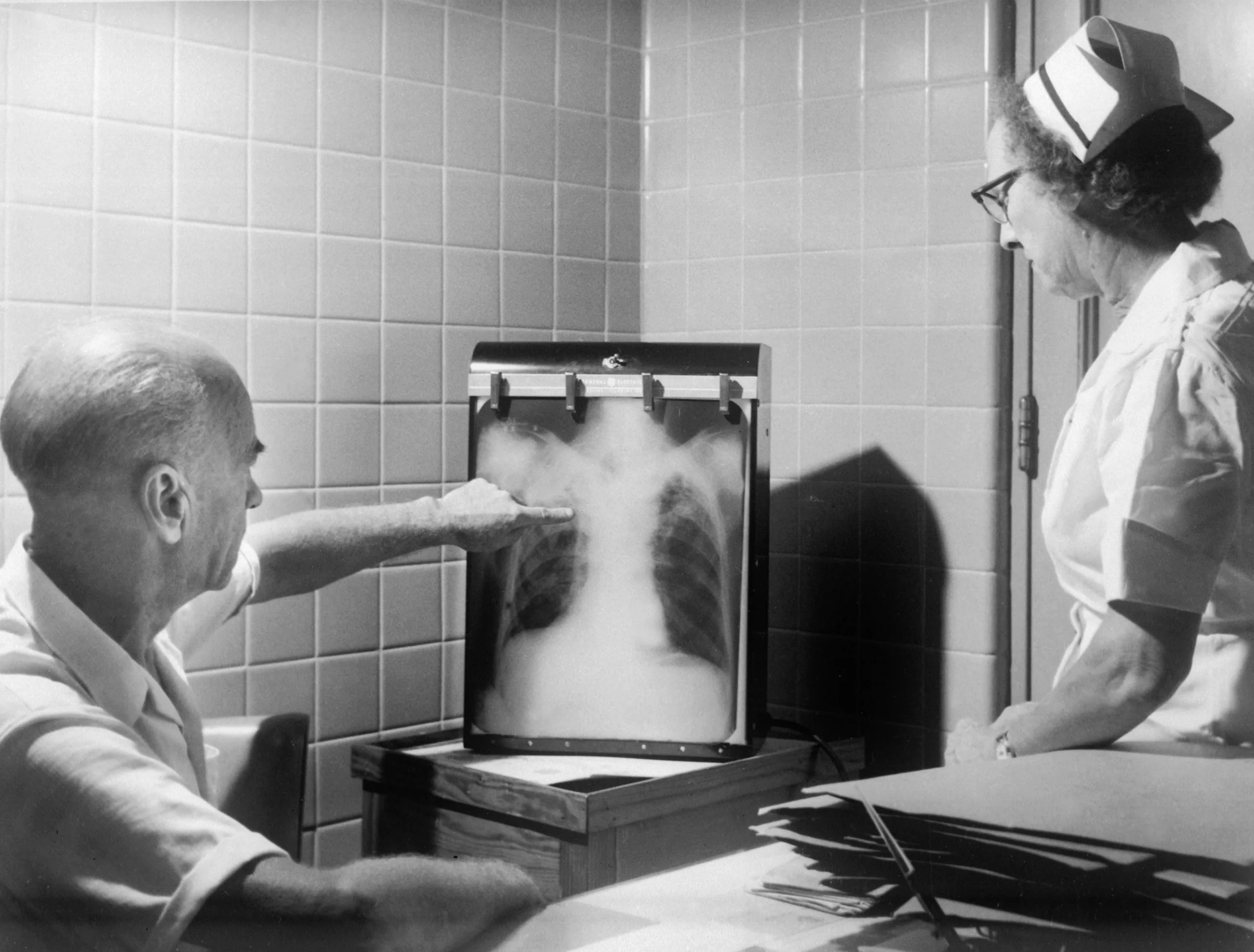E-cigarettes’ Unknown Long-Term Effects in Lung Cancer Raise Questions

The National Cancer Institute has given funding P50CA180890 to further the research because there is a lack of information regarding the long-term safety profile of electronic cigarettes (e-cigarettes). Experts who treat lung cancer have expressed worry about these products and their association with the risk of lung cancer. These products have already been connected to blood vessel damage.
Additionally, the FDA has released broad safety concerns that include dangers associated with using e-cigarettes, vaporizers, and other tobacco products. Despite studies suggesting e-cigarettes may be less dangerous than conventional cigarettes, the FDA warns that more research is needed before making claims about the effectiveness of e-cigarettes and other electronic nicotine delivery systems as smoking cessation aids.
“Tobacco products, including [electronic nicotine delivery systems], are never safe. In addition to exposing people to the dangers of tobacco-related illness and death, the FDA has heard from the public about safety issues related to vaping products, according to their statement.
No e-cigarettes have been authorised to make a modified risk claim or been licenced as a cessation device as of yet. More investigation is therefore required to assess the possible hazards and advantages that users of these items may experience. The attributable risk of e-cigarettes has not yet been determined, and current practise lags behind in terms of capturing e-cigarette usage, according to authors in an article published in the ASCO Daily News, led by Wint Yan Aung, MD, an internal medicine resident at the Donald and Barbara Zucker School of Medicine at Hofstra/Northwell.
A rising body of evidence from the few research that have looked into the negative effects of using e-cigarettes suggests that exposure to these products will alter the pulmonary environment and lead to chronic lung diseases.
Over 2800 hospital admissions and 68 fatalities have been linked to the e-cigarette or vaping device use-associated lung damage outbreak. These results emphasise the possibility of acute lung toxicity from e-cigarettes, according to the authors of a paper that appeared in the ASCO Daily News. The use of e-cigarettes may increase the risk of cancer in the long run in addition to the recognised carcinogenic effects of nicotine and its metabolites, according to the evidence.
The prevalence of e-cigarette use increased between 2016 and 2017 and 2017 and 2018, particularly among young adults, teenagers, and middle school students. The nationwide prevalence of e-cigarette usage grew to 5.4% in 2018, implying that 13.7 million Americans used these devices, according to research that was published in the JAMA Network.
With an estimated 4.9% of middle school students and 20.7% of high school students using e-cigarettes in 2018, the popularity of these gadgets grew. They have grown in popularity over time for a variety of reasons, according to Nagashree Seetharamu, MD, MBBS.
“E-cigarettes are far more appealing because of the flavours they come in. Perhaps the hues, tastes, social media, and peer pressure all contribute to it. We want to learn more about what we already know about it and what the risks are. However, e-cigarettes have been linked to lung damage, significant hospitalizations, and a few hundred deaths, according to Seetharamu, professor of haematology and medical oncology at the Donald and Barbara Zucker School of Medicine at Hofstra/Northwell, in an interview with Targeted OncologyTM. “Of course, it’s too early to know exactly what causes it, but e-cigarettes have been linked to lung injury, resulted in significant hospitalizations, and
Experts are concerned about the potential long-term effects of e-cigarette use, including lung cancer, given the documented shift toward everyday e-cigarette usage among younger adults and students.
E-cigarettes’ Effect on Lung Health
Although the complete impact of e-cigarettes and vaping on lung cancer is unknown, preclinical studies has shown detrimental results when utilised in animal models. There is an unnerving hypothesis that e-cigarettes will have the same harmful effects on humans as they have on mice that concerns clinicians like Seetharamu.
“We only know that vaping causes a significant inflammatory response in the lungs from preclinical investigations. There have been reports of cancer growing in cell lines after exposure to vaping goods in mice models. We won’t know about the risk until perhaps another 10 years before we actually notice how vaping affects cancers because carcinogenesis takes a few years.
Examining the oxidative stress and inflammatory response in lung epithelial cells is one of the preclinical research that highlights the negative effects of e-cigarettes.
After earlier research by the team showed that mice exposed to e-cigarettes developed bladder urothelial hyperplasia and lung cancer, the Proceedings of the National Academy of Sciences study examined the impact of e-cigarettes on mice. Researchers under the direction of Tang et al. further examined the carcinogenicity of e-cigarettes in mice because the danger they pose to humans has received so little research.
They discovered that, compared to none of the mice in the control group, 9 out of 40 mice (22.5%) that were exposed to nicotine-containing e-cigarette smoke for 54 weeks developed lung adenocarcinoma. Although these results are concerning, it is unknown whether they apply to people, necessitating further in-depth research.
Then, a study looked at how users of e-cigarettes and cigarette smokers compared to nonusers in terms of the regulation of genes and related molecular pathways in oral cells. Researchers discovered that there were overlapping patterns of gene expression alterations, with the majority of this overlap falling under pathways and functions relevant to cancer.
According to a different study, using e-cigarettes concurrently with chemotherapy may result in less successful treatment outcomes, much like smoking tobacco. An in vitro examination of patients with head and neck squamous cell carcinoma revealed this.
Here, it was found that the expression of cisplatin transporters was changed in tumour cells that had been exposed to e-cigarette aerosols. Furthermore, oral cancer cells showed an increase in medication resistance. The fact that the effect identified in the study was unrelated to the amount of nicotine shows that the components in e-cigarettes have the potential to both cause cancer and affect how effectively a patient responds to treatment.
Each of these preclinical studies may show that e-cigarettes have carcinogenic consequences, but since they were conducted on preclinical models, it won’t be more than ten years before we can link e-cigarette use to an increase in cancer incidence.
Next, what?
Clinical studies investigating e-cigarettes as a method of quitting smoking are now in progress. Many organisations are now strongly opposing the use of e-cigarettes until we have more information about their safety. They want manufacturers to provide them with proof that their goods are dangerous. Perhaps existing research will give some light, but until those studies and their findings are made public, I would proceed with extreme caution, said Seetharamu.
An ongoing, randomised clinical trial (NCT05144542) at the University of Texas MD Anderson Cancer Center is examining the advantages and disadvantages of e-cigarettes for elderly smokers who are at a high risk of getting lung cancer.
The trial’s main goal is to determine how switching from conventional cigarettes to e-cigarettes affects usage, acceptance, and reinforcement among daily, adult smokers who are at high risk of developing lung cancer. Characterizing the effects of switching from conventional cigarettes to e-cigarettes on oxidative stress and inflammatory biomarkers will be the trial’s secondary end aim.
The Ohio State University Comprehensive Cancer Center is also doing a pilot study on e-cigarettes for those with lung or head and neck cancer (NCT05412875). Patients are being enrolled in the experiment as it looks into the acceptability of e-cigarettes for quitting smoking and the reduction of complications from surgery in this patient population. The long-term effects and advantages (if any) of e-cigarettes on lung cancer are yet unknown, thus Seetharamu encourages her patients, including those with and without lung cancer, to abstain from using any tobacco products due to the potential risks.
“I advise patients against switching to e-cigarettes. All young people who have never been exposed to tobacco intensely should not use it. Only with the assistance of business, with the aid of group thinking, and by emphasising in schools, colleges, and social media that there are other fun things to do that are not hazardous to health can we achieve this, continued Seetharamu.
Overall, the components that may cause lung damage or be linked to a higher risk of cancer remain uncertain due to the paucity of data and the wide variety of tobacco products on the market. It is obvious that a range of these items have the potential to have a negative influence on patients with and without lung cancer and raise the risk of cancer development based on the most recent information from preclinical trials and emerging data.
“We have concentrated and invested a lot of money into finding novel therapies and targets in stage IV lung cancer, but what about prevention? That frequently takes a back seat, even though I have a special interest in that field. According to what we know, vaping poses a risk. But can it also be used successfully to help people quit smoking? If so, what is the best way to employ it? That is still under construction. We will learn more as time goes on about their genuine influence on lung function and their impact on producing lung cancer through analysis of recently finished and ongoing clinical trials, said Seetharamu.
Ref: https://www.targetedonc.com/view/unknown-long-term-effects-of-e-cigarettes-generates-questions-in-lung-cancer
If you are facing any of the issues discussed in this article, please do not hesitate to contact us, and we will do our best to help you.

